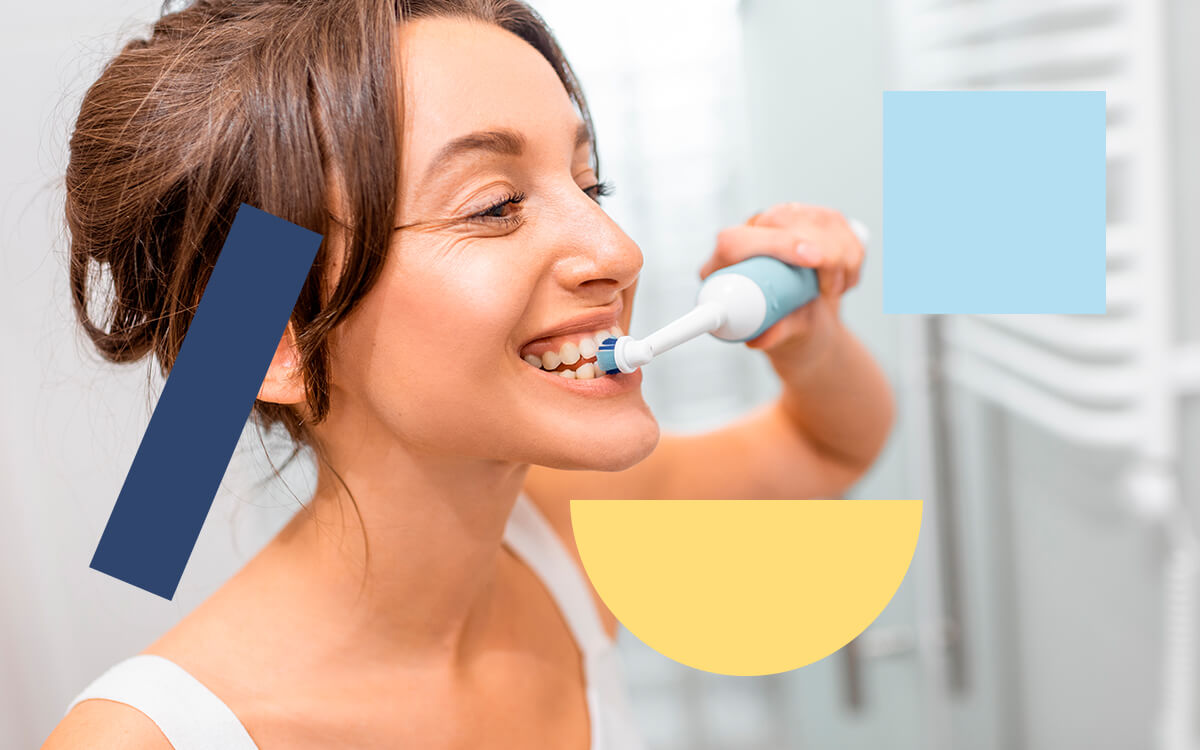The toothbrush is a basic element in the care of the health of the mouth. Nowadays we can find a great diversity of toothbrushes that vary in their shape, size, texture, but above all in the hardness and type of bristles. Which of them is the best toothbrush for sensitive teeth?
It is very important to know the different intensities that exist in terms of the resistance offered by the bristles of the toothbrush. Those small filaments that we find in the brush head are usually made of nylon, a highly malleable material with which a greater or lesser hardness can be achieved.
Through this complete guide we will see what are the different hardnesses of manual toothbrushes, which is the best toothbrush soft, and why these are the most suitable for tooth sensitivity. tooth sensitivity.
What is the hardness of a toothbrush?
A toothbrush is made up of different parts. On the one hand, we have the handle, which allows a perfect grip and handling during brushing. Next, we find the head, which is the part that is introduced into the mouth. And finally we have the bristles, or the small filaments in charge of dragging the dirt from the surface and between the spaces of each of the dental pieces.
This last part, the bristles of toothbrushes, determines their hardness. The nylon bristles of the toothbrush can be more or less firm depending on the needs of each person.
Although a brush with high hardness easily removes food debris and dental biofilm, it can also have a negative aspect, as its improper use could cause damage to enamel and gums.
Different levels of hardness in a toothbrush
Each person has specific needs when brushing their teeth. Some people brush their teeth very carefully soft without pressing the brush too hard against the surface of the teeth and gums, while others brush more intensely.
Gums can also go through different states throughout life. Sometimes they are more sensitive and bleed easily, while at other times they are in excellent health and stronger than ever.
For all these moments and people there is an ideal type of toothbrush. It is important to know when to use each of them in order to achieve a complete oral hygiene, avoiding damage to adjacent tissues.
Hard toothbrush
The toothbrush with hard bristles offers greater resistance in brushing. Its bristles are highly rigid and manage to remove dirt easily. However, they are only suitable for people who do not exert much pressure during brushing and who, of course, have excellent oral health and no sensitivity problems.
Toothbrush Medium
Medium toothbrushes are the most commonly used toothbrushes. They are somewhat softer, but still provide a certain stiffness that increases brushing efficiency. They are equally suitable for anyone who does not have problems with tooth or gum sensitivity.
Toothbrush soft
Soft toothbrushes have softer filaments, ideal for delicate gums and sensitive teeth. They perfectly remove food debris and effectively prevent the formation of biofilm on teeth and gums. Say goodbye to tooth sensitivity with our specialized products.
Discover our products for tooth sensitivity

Extra toothbrush soft
Finally, we have the extra soft toothbrushes, which are the best in case of gums prone to bleeding or for highly sensitive teeth. Their filaments are the softest, and prevent any kind of damage during brushing, even when high pressure is exerted.
Which toothbrush to use for sensitive teeth?
The hardness of toothbrushes most recommended for the general population ranges from medium to soft. This will depend on the preferences of each person and the way they usually brush their teeth, using more or less force.
However, in the case of sensitive teeth, other considerations must be taken into account. In order to limit as much as possible the damage caused to the tooth enamel and gums during brushing, it is more advisable to use soft or extra soft brushes.
As we have already seen, in cases of tooth sensitivitythe best toothbrushes are those with soft bristles. On the other hand, in people who have a high risk of bleeding during brushing or highly sensitive teeth, extra soft bristle brushes are the most indicated.
Qualities of soft toothbrushes
It may seem that only toothbrushes of high or medium hardness help to easily remove food debris from teeth, but soft and extra soft toothbrushes are equally effective, and at the same time have other qualities that are highly beneficial to enamel and gums.
A toothbrush with soft or extra soft bristles is designed to exert less friction on the tooth surface. This reduces the risk of enamel erosion, especially in users who tend to apply more force with a manual toothbrush during brushing.
In addition, soft toothbrushes contain more flexible filaments with a greater range of movement, capable of covering the entire surface of the teeth and additionally lightly massaging the gums. They effectively remove dental biofilm and food debris, ensuring complete oral hygiene.


 What to consider when choosing the best electric toothbrush?
What to consider when choosing the best electric toothbrush? How to relieve pain with newly placed braces?
How to relieve pain with newly placed braces? How to keep your breath fresh?
How to keep your breath fresh?


